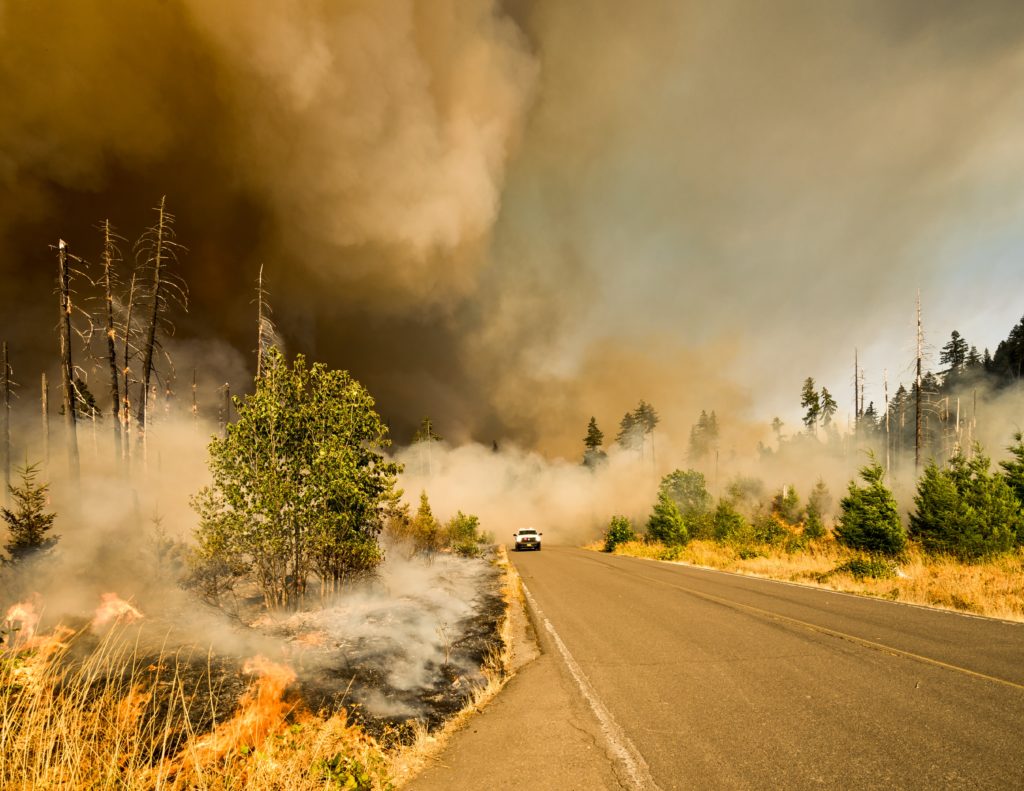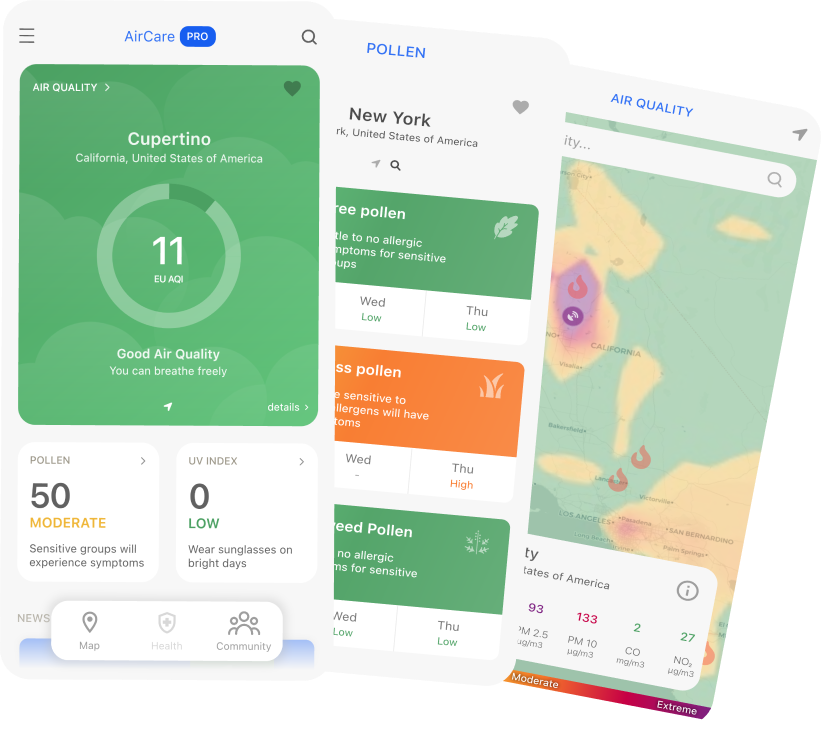We all know that wildfires pose a threat to our health. The smoke can worsen chronic lung and heart diseases, irritate your respiratory system, and hurt your eyes.
According to the EPA people who are at the greatest risk of wildfire smoke are the following:
- Pregnant women
- Older adults
- Children under the age of 18
- People with cardiovascular disease
- People with asthma and other respiratory diseases
- People of low socio-economic status
- Outdoor workers
Below are a few tips for wildfire safety and coping with wildfire smoke, which can last for days after a wildfire occurs.

1. Monitor the Air Quality in Your Area
A part of your daily routine should be checking the air quality in your area if you live in a region where wildfires are common. A wildfire has the potential to impact your local air quality, even if it’s hundreds of miles away.
You can make an informed decision to decrease your exposure to harmful pollutants by staying current on the level of pollution in your area. With AirCare, you get up-to-date information on air quality, no matter where you go.
2. Reduce Your Exposure to Smoke Outdoors
It is best to limit the amount of time you spend outside on days when smoke affects the quality of the air. You should be careful about doing any energetic outdoor activity, such as mowing the lawn or jogging, which can increase the amount of smoke you inhale and can make you breathe harder.
Pay attention to the changes in air quality throughout the day. Try to run any necessary errands when the quality of the air gets better, and try to finish them before it gets worse again.
Keep enough medicine and food on hand to last you a few days as a way to reduce the number of times you leave the house. This way, you can avoid going outdoors when the quality of the air is really bad. In case going out cannot be avoided, roll up the windows in your car and keep them closed.
3. Wear A Mask Outside
You can wear a mask to help reduce the smoke you inhale in case you cannot avoid going out when the air quality isn’t up to standards. Keep in mind that surgical masks, bandanas, and cloth masks that you use to protect yourself from the coronavirus will not protect you from exposure to wildfire smoke.
On the other hand, respirator masks form a seal around your mouth and force you to breathe through the vents that are fileted in the mask. Look for N95 respirator masks with 95% or more tiny 0.3-micrometer particles.
Masks are usually not made to fit pets or children, even though there are options you can look for online. Try to keep pets and children from exposure to smoke if possible. If this isn’t something that can be avoided, look for respirator masks that are specially fitted for children and pets to wear.
4. Keep Indoor Air as Clean as Possible
During wildfire season, it is best to keep your indoor air as clean as possible by decreasing the amount of outdoor air that enters your home. You can do this by keeping doors and windows closed or by using an air purifier that will remove fine particles from the air.
You should also avoid activities in your home that cause pollution, such as spraying aerosol products, cooking on gas stoves, frying food, burning candles, and smoking.
Create a clean room where you keep an air purifier running continuously and take extra measures like wiping down or dusting surfaces to keep settled particles from getting back into the air. Spending time in this room can help you reduce your exposure to smoke while staying indoors.
5. Prevent Wildfires from Happening
Build, prepare, extinguish and maintain fires safely. If you burn debris or trash, make sure that you follow local regulations. To ensure that the weather is safe enough for burning, check with your local fire department.
How Can AirCare Help?
With AirCare, you can see the air quality and air pollution in real-time, all from your pocket. When there is a change in air quality in your favorite locations, you will get notified. By monitoring air pollution, you will be able to act accordingly and reduce health risks! Download for free today on iOS and Android!
Do you want to know the quality of the air you breathe? Download AirCare – our free mobile app that tracks air pollution from your pocket, and check out the AirCare blog!





